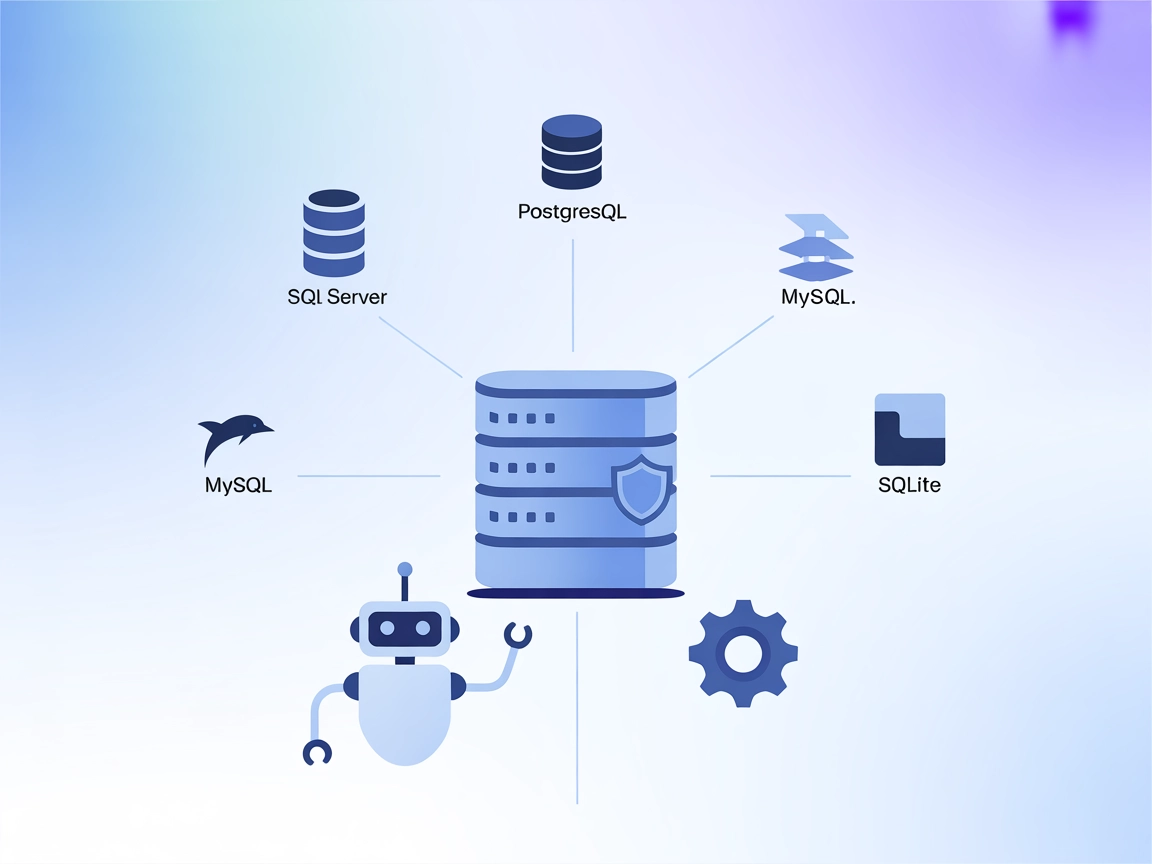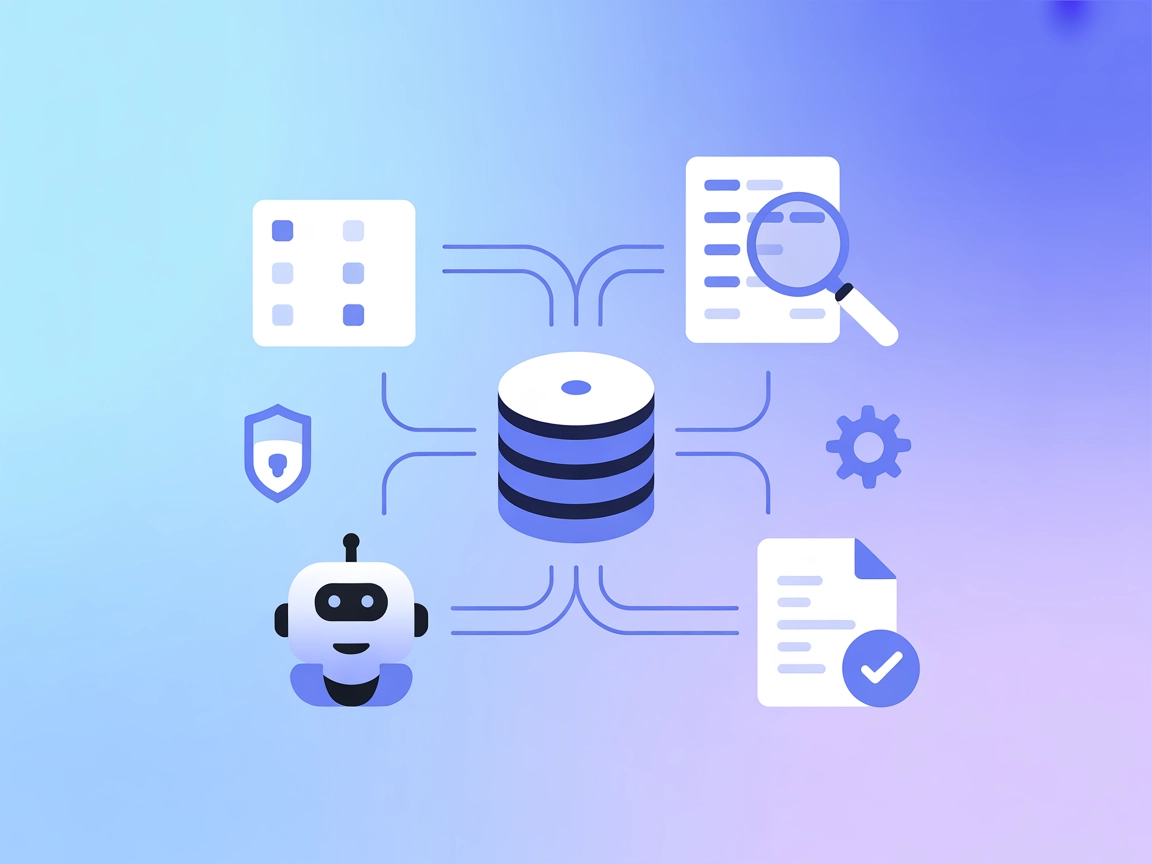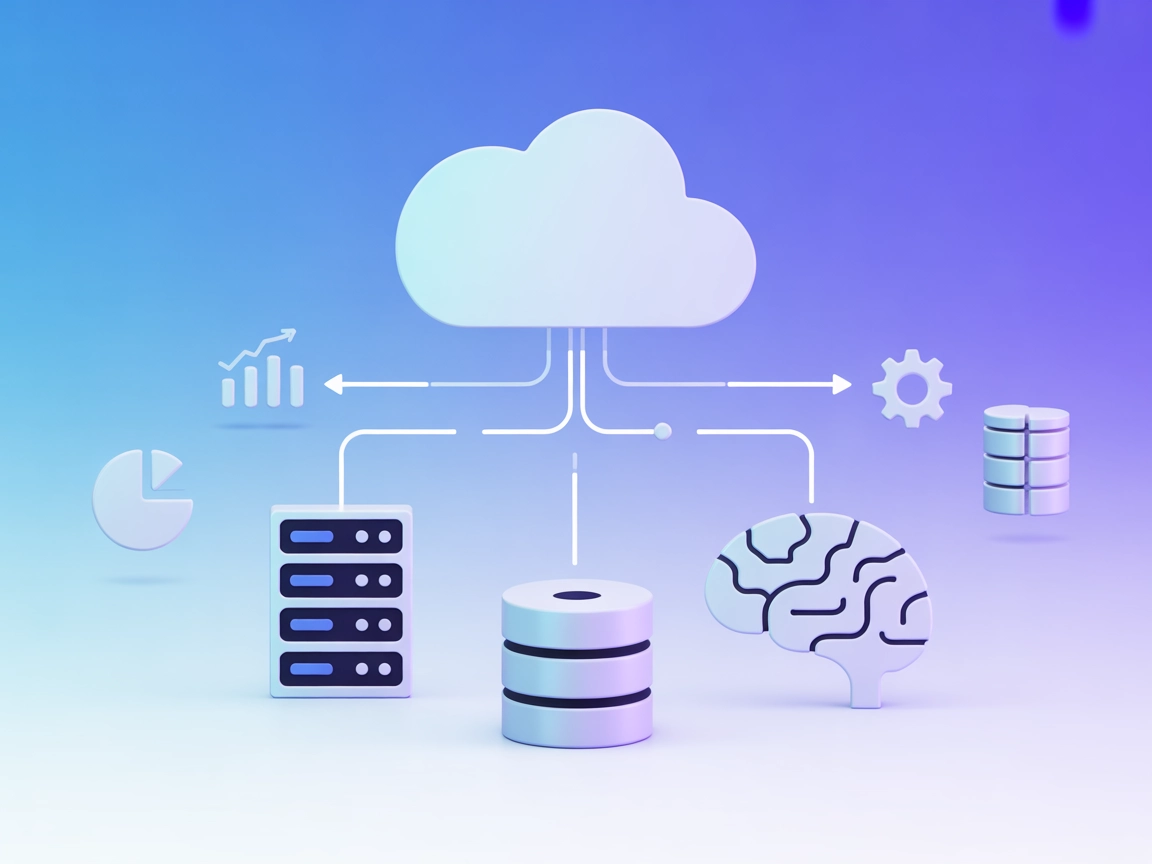
MCP Database Server
The MCP Database Server enables secure, programmatic access to popular databases like SQLite, SQL Server, PostgreSQL, and MySQL for AI assistants and automation...

A secure Model Context Protocol implementation that connects AI agents with MySQL databases for querying, data exploration, and automated reporting—all with robust configuration and access controls.
FlowHunt provides an additional security layer between your internal systems and AI tools, giving you granular control over which tools are accessible from your MCP servers. MCP servers hosted in our infrastructure can be seamlessly integrated with FlowHunt's chatbot as well as popular AI platforms like ChatGPT, Claude, and various AI editors.
The MySQL MCP Server is a Model Context Protocol (MCP) implementation that enables secure interaction between AI assistants and MySQL databases. Serving as a bridge, it allows AI applications to safely explore, analyze, and interact with MySQL databases through a controlled interface. This server is not intended to run standalone, but is designed to be integrated into broader AI development workflows as a backend component. With features such as listing available MySQL tables, reading table contents, executing SQL queries, and enforcing secure database access via environment variables, the MySQL MCP Server empowers developers to connect AI systems with live database data, manage queries, and streamline database-centric tasks—all while maintaining comprehensive logging and error handling for robust operations.
No information about prompt templates is available in the repository.
mysql-mcp-server package is installed via pip install mysql-mcp-server.{
"mcpServers": {
"mysql": {
"command": "uv",
"args": [
"--directory",
"path/to/mysql_mcp_server",
"run",
"mysql_mcp_server"
],
"env": {
"MYSQL_HOST": "localhost",
"MYSQL_PORT": "3306",
"MYSQL_USER": "your_username",
"MYSQL_PASSWORD": "your_password",
"MYSQL_DATABASE": "your_database"
}
}
}
}
Securing API Keys:
Use the "env" object to set sensitive values via environment variables, as shown above.
mysql-mcp-server using pip install mysql-mcp-server.claude_desktop_config.json file.{
"mcpServers": {
"mysql": {
"command": "uv",
"args": [
"--directory",
"path/to/mysql_mcp_server",
"run",
"mysql_mcp_server"
],
"env": {
"MYSQL_HOST": "localhost",
"MYSQL_PORT": "3306",
"MYSQL_USER": "your_username",
"MYSQL_PASSWORD": "your_password",
"MYSQL_DATABASE": "your_database"
}
}
}
}
pip install mysql-mcp-server).{
"mcpServers": {
"mysql": {
"command": "uv",
"args": [
"--directory",
"path/to/mysql_mcp_server",
"run",
"mysql_mcp_server"
],
"env": {
"MYSQL_HOST": "localhost",
"MYSQL_PORT": "3306",
"MYSQL_USER": "your_username",
"MYSQL_PASSWORD": "your_password",
"MYSQL_DATABASE": "your_database"
}
}
}
}
pip install mysql-mcp-server.{
"mcpServers": {
"mysql": {
"command": "uv",
"args": [
"--directory",
"path/to/mysql_mcp_server",
"run",
"mysql_mcp_server"
],
"env": {
"MYSQL_HOST": "localhost",
"MYSQL_PORT": "3306",
"MYSQL_USER": "your_username",
"MYSQL_PASSWORD": "your_password",
"MYSQL_DATABASE": "your_database"
}
}
}
}
Securing API Keys Example:
"env": {
"MYSQL_HOST": "localhost",
"MYSQL_PORT": "3306",
"MYSQL_USER": "your_username",
"MYSQL_PASSWORD": "your_password",
"MYSQL_DATABASE": "your_database"
}
Store sensitive credentials in the env section to avoid hardcoding them elsewhere.
Using MCP in FlowHunt
To integrate MCP servers into your FlowHunt workflow, start by adding the MCP component to your flow and connecting it to your AI agent:

Click on the MCP component to open the configuration panel. In the system MCP configuration section, insert your MCP server details using this JSON format:
{
"mysql": {
"transport": "streamable_http",
"url": "https://yourmcpserver.example/pathtothemcp/url"
}
}
Once configured, the AI agent is now able to use this MCP as a tool with access to all its functions and capabilities. Remember to change “mysql” to whatever the actual name of your MCP server is and replace the URL with your own MCP server URL.
| Section | Availability | Details/Notes |
|---|---|---|
| Overview | ✅ | |
| List of Prompts | ⛔ | No prompt templates found |
| List of Resources | ✅ | MySQL tables, table contents, query results |
| List of Tools | ✅ | List tables, read table, execute SQL |
| Securing API Keys | ✅ | Uses environment variables in config |
| Sampling Support (less important in evaluation) | ⛔ | Not mentioned |
The MySQL MCP Server is a focused, robust MCP implementation for secure database access, with clear configuration and security features. However, it lacks prompt templates and does not mention advanced MCP features like sampling or roots. Still, its solid documentation, resource exposure, and tool set make it a practical choice for database-driven AI integration.
| Has a LICENSE | ✅ (MIT) |
|---|---|
| Has at least one tool | ✅ |
| Number of Forks | 149 |
| Number of Stars | 614 |
The MySQL MCP Server is a secure backend component that connects AI assistants to MySQL databases, enabling them to list tables, query data, and manage database tasks through a standardized protocol.
The server uses environment variables for configuration, keeping sensitive credentials out of your codebase and allowing for safer deployment.
It is designed to work with FlowHunt and other platforms supporting the MCP protocol, including Windsurf, Claude, Cursor, and Cline.
The server allows execution of arbitrary SQL queries, including reads and writes. However, access and permissions are managed via the connected MySQL user.
Common uses include AI-driven data analysis, automated reporting, secure database management, and code generation/debugging for SQL queries.
No prompt templates are included in the repository at this time.
Empower your AI workflows with secure, robust access to MySQL databases using the MySQL MCP Server. Analyze, automate, and manage your data effortlessly.

The MCP Database Server enables secure, programmatic access to popular databases like SQLite, SQL Server, PostgreSQL, and MySQL for AI assistants and automation...

AnalyticDB for MySQL MCP Server provides a universal interface for connecting AI agents to Alibaba Cloud's AnalyticDB for MySQL, enabling seamless database acce...

The MSSQL MCP Server connects AI assistants with Microsoft SQL Server databases, enabling advanced data operations, business intelligence, and workflow automati...
Cookie Consent
We use cookies to enhance your browsing experience and analyze our traffic. See our privacy policy.